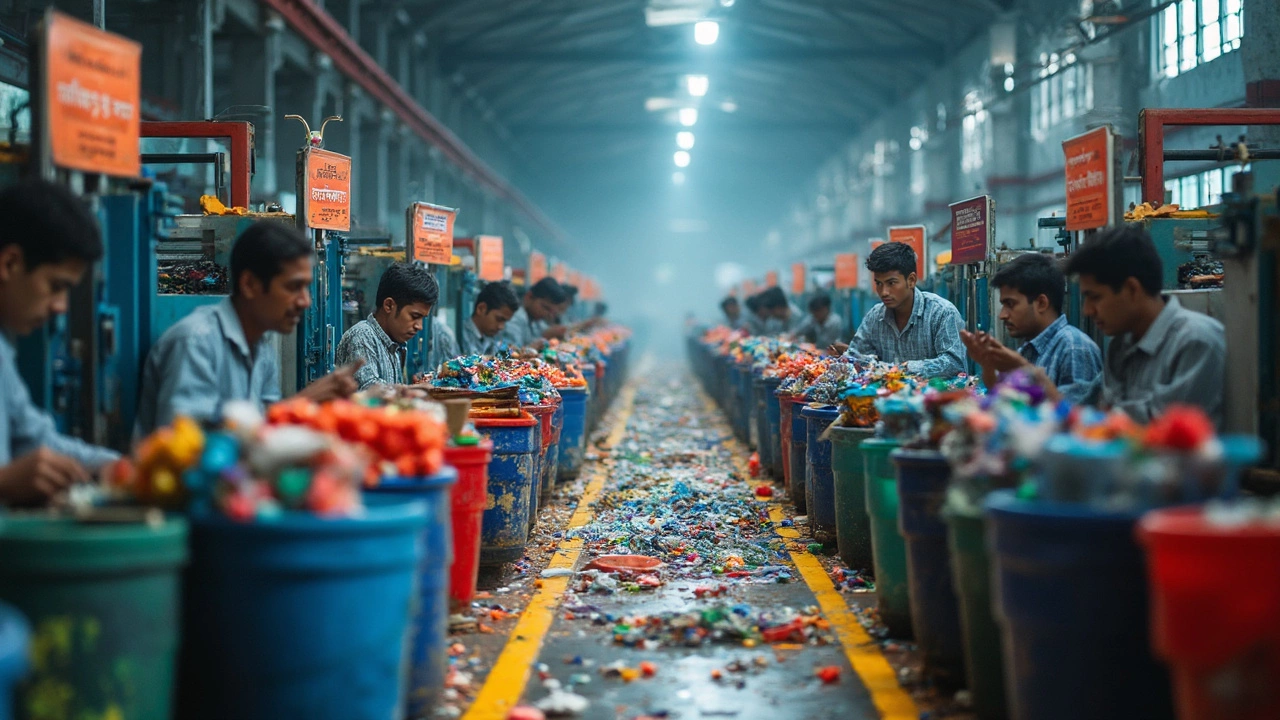Polymer Producers – What They Do and How to Choose the Right One
When you hear “polymer producers,” think of the factories that turn raw resin into the plastic parts you see every day – from water bottles to car dashboards. They handle everything from mixing raw materials to shaping, testing, and packing the final product. In India, the sector is booming because businesses need cheap, strong, and lightweight components for everything from electronics to construction.
If you’re looking for a partner, the first step is to understand the process. A good producer will have clear steps: material sourcing, melt‑blending, extrusion or injection molding, quality checks, and compliance with standards like ISO 9001 or BSI. Knowing where each step happens helps you spot gaps, negotiate better prices, and avoid surprises later.
Key Services Offered by Polymer Producers
Most polymer producers don’t just churn out a single product. They offer a menu of services that can save you time and money:
- Custom formulation: Want a flame‑retardant or UV‑stable plastic? Producers can tweak resin blends to match your specs.
- Tooling design: If you need a new mold, many factories have in‑house engineers who can design and prototype it fast.
- Prototype runs: Before you commit to a big order, you can test a small batch to fine‑tune dimensions or performance.
- Quality assurance: Certified labs check tensile strength, impact resistance, and chemical compatibility.
- Logistics support: From warehousing to shipping, reliable producers coordinate delivery to keep your supply chain smooth.
Ask any potential partner about these services up front. A producer that can handle multiple steps under one roof usually means fewer handoffs and lower overall cost.
Sustainability Trends in Polymer Production
Eco‑friendly plastics are no longer a niche. Buyers, regulators, and consumers are all pushing for greener options. Look for producers that recycle scrap material, use bio‑based resins, or have a plan to reduce carbon emissions. In India, several plants now run on renewable energy and offer “green” grades of polyethylene and polypropylene.
When you evaluate a polymer producer, ask about their waste‑management system. Do they recycle off‑cuts back into the melt line? Do they have certifications like ISO 14001 for environmental management? These signals tell you whether the company is serious about sustainability or just paying lip‑service.
Another practical tip: check the product’s end‑of‑life plan. Some producers label their plastics for easy recycling, while others embed additives that make the material harder to process later. Choosing a producer that thinks about the whole lifecycle can protect your brand from future backlash.
In short, picking the right polymer producer boils down to three things: clear process visibility, value‑added services, and a genuine sustainability agenda. Ask for sample reports, visit the factory if possible, and compare how each candidate handles customization, quality checks, and environmental impact. Doing this homework now will pay off in smoother production runs, happier customers, and a greener reputation.
Ready to start? Contact a few vetted producers, share your technical sheet, and request a quick prototype. The best partners will respond quickly, suggest improvements, and give you a realistic quote. With the right polymer producer on your side, turning a design idea into a market‑ready product becomes a lot less stressful.
Plastic Manufacturers: Who Makes the Stuff We Use Every Day?
This article gives a clear look at who manufactures plastic, from the major global players to the smaller, specialized firms. You'll find tips on what makes a plastic manufacturer stand out and what industries rely on their products most. We’ll cover interesting facts, like how recycling changes the plastic market, and what new trends shape the future of plastic production. The article also lists some big names and shares practical advice for anyone interested in choosing or working with a plastic manufacturer. Dive in for a straightforward guide packed with real-world relevance.
